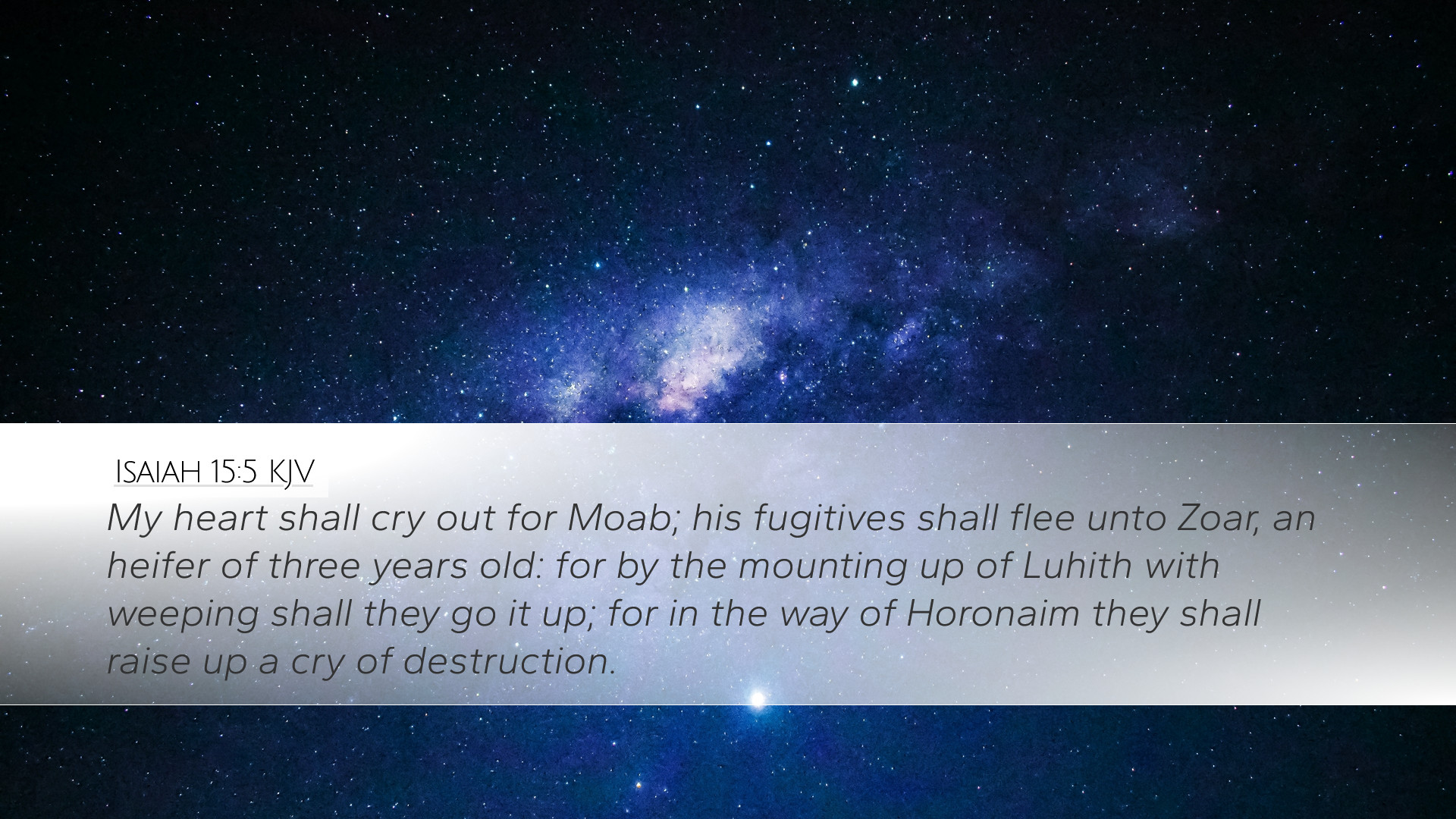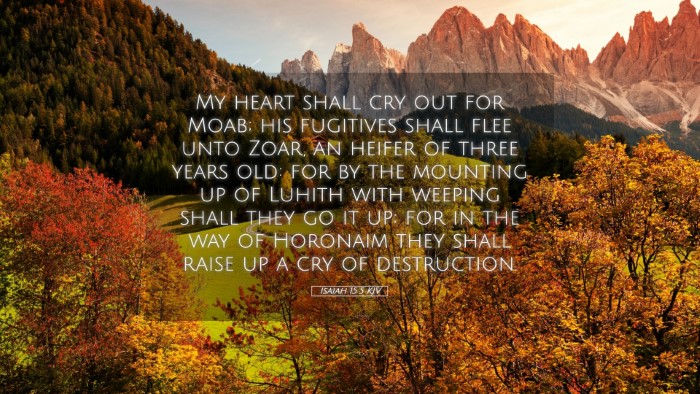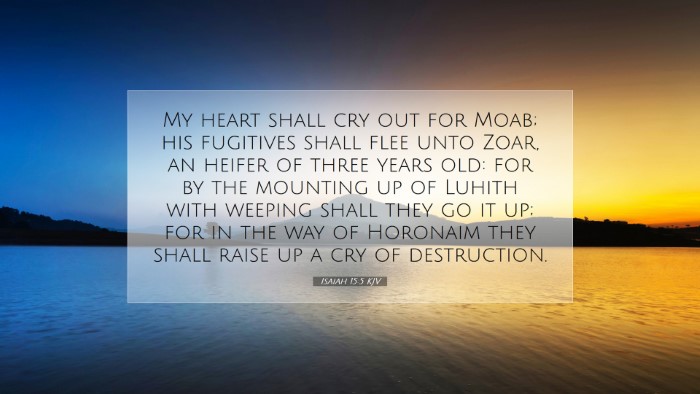Commentary on Isaiah 15:5
Verse Overview: Isaiah 15:5 states, "My heart cries out for Moab; her fugitives flee to Zoar, to Eglath-Shelishiyah." This verse captures a poignant moment of lament over the fate of Moab, a nation often seen as enemy to Israel. It conveys a mixture of divine judgment and human compassion.
Contextual Background
In the context of Isaiah's prophecies, the chapter addresses divine judgment against Moab for its pride, rebellion, and idolatry. Moab's geographical proximity to Israel and its history of antagonism adds a layer of complexity to the relationship between the two nations. The passage invites us to reflect on the consequences of sin while recognizing God's mercy amidst judgment.
Insights from Public Domain Commentaries
Matthew Henry's Commentary
Matthew Henry emphasizes the deep emotional response of the prophet towards Moab's plight. He notes the use of "My heart cries out" as an expression of genuine sorrow, reflecting God's compassion even in the midst of impending judgment. Henry points out that the destruction of Moab evokes a yearning for their repentance and restoration rather than mere rejoicing over their downfall.
Albert Barnes' Notes
Albert Barnes explicates the significance of the 'fugitives' fleeing to Zoar. He explains that this indicates a desperate search for safety, symbolizing the broader flight from impending disaster. Barnes further elaborates that the city of Zoar represents not just a physical refuge but also a metaphorical reminder of the mercy shown to Lot during the destruction of Sodom and Gomorrah. This connection highlights a glimmer of hope amidst despair, as God's ability to save even in dire circumstances is underscored.
Adam Clarke's Commentary
Adam Clarke provides a detailed historical context concerning Moab and its relationship with Israel. He notes that Moab was destined for destruction not solely because of warfare, but due to its idolatrous practices which struck at the heart of covenant loyalty to God. Clarke emphasizes the faithfulness of God to His covenant, illustrating how Moab's downfall serves as a warning to other nations about the consequences of turning away from the Lord.
Theological Reflection
As scholars and theologians contemplate Isaiah 15:5, several themes emerge:
- The Nature of God's Judgment: The passage serves as a reminder that God's judgment is not arbitrary but is rooted in justice and righteousness. The emotional response of the prophet reveals God's heart towards humanity, even those who have strayed.
- The Call for Compassion: Isaiah’s lamentation points to the need for believers today to respond with compassion toward those who suffer, even those who may be considered enemies. It reflects God’s desire to redeem rather than to destroy.
- Hope in Despair: The mention of Zoar serves as a pivotal hope in chaos. This reminds us that God can provide refuge in the most desolate of circumstances, emphasizing the dual nature of divine justice and mercy.
- Historical Contextualization: Understanding the geopolitical dynamics of Moab's historical context deepens our appreciation for the intricate relationships between nations as portrayed in Scripture.
Practical Application for Ministers and Theologians
The insights from Isaiah 15:5 can guide ministers and theologians in various ways:
- Preaching on Compassion: Pastors can utilize this verse to teach about the importance of showing compassion, even to those with whom we have conflicts.
- Equipping for Crisis: As societies face national and global crises, this passage serves as an important reminder for believers to be sources of hope and refuge.
- Engaging with Hard Texts: This scripture can encourage a robust engagement with difficult texts that involve themes of judgment, helping congregations to grapple with the reality of divine justice.
- Spiritual Reflection: Students of the Word can reflect on their own lives, seeking the areas where they may be resistant to God’s call for repentance and restoration.
Conclusion
Isaiah 15:5 serves as a rich source for reflection on the interplay between divine judgment and mercy, calling all who study the Word to engage deeply with the heart of God as displayed through the prophet. As we unpack and apply these insights, may we be equipped to embody God's compassion in a world marked by strife and division.


